Scientific Information/Data
Omega MonoPure® Curcumin EC features highly absorbable, patented forms of both monoglyceride fish oil and standardized turmeric extract to offer combined support for cellular health and the modulation of cytokine production.*
The two most well-researched omega-3 fatty acids are eicosapentaenoic acid (EPA) and docosahexaenoic acid (DHA). EPA plays a role in supporting healthy cardiac and circulatory systems while DHA is an essential structural component of the central nervous system. In addition to other physiological effects, research has established that omega-3 fatty acids antagonize arachidonic acid-induced eicosanoid formation. They also help generate resolvins and protectins (EPA and DHA metabolites, called specialized proresolving mediators (SPMs), that are naturally produced in vivo through enzymatic conversion of EPA and DHA) to aid the body’s “cleanup” response to the arachidonic acid cascade, and they promote
cardiovascular health.*[1-7]
Curcumin, the principal curcuminoid in turmeric, has been the subject of vast research in recent years. The pleiotropic nature of curcumin’s biological effects makes it an interesting compound to researchers who study common chronic health concerns, such as those associated with joints, the cardiovascular system,
glucose metabolism, brain function, mood, and cell-cycle regulation. These effects make curcumin applicable to a wide array of clinical presentations.*[8-13]
MaxSimil® Fish Oil Concentrate
MaxSimil is a novel monoglyceride concentrated fish oil developed using patented lipid absorption enhancement technology (PLATform), a unique vehicle by which to deliver EPA and DHA. Due to the fact that monoglyceride oils are intrinsically emulsifiers and are, by nature, in a readily absorbable form, they can bypass the body’s normal fat digestion process. Studies conducted by the manufacturer of MaxSimil provide promising results that show MaxSimil fish oil may be better absorbed than other fish oils. Rather than supplying a single molecule or metabolite, which would mirror the pharmaceutical model, MaxSimil provides all the benefits of EPA and DHA as well as the expected and desirable benefits of their metabolites. From a quality perspective, every batch of fish oil is IFOS five-star certified to ensure the highest standards for purity, potency, and freshness. The fish oil is also nonGMO, certified sustainable from Scandinavia, and antibiotic-free.*[14-16]
An unpublished single dose, double-blind, crossover, pharmacokinetic study was performed in healthy overnight fasted male and female subjects (n = 20) aged between 19 and 60 years. Each participant was administered six softgels (containing 2000 mg EPA and 1500 mg DHA) of ethyl ester (EE) fish oil or MaxSimil. Parameters studied were plasma EPA and DHA concentration (as percent of total fatty acids), maximum concentration (Cmax), time to concentration (Tmax) and area under the curve (AUC). The results indicated that at peak concentration, the MaxSimil EPA and DHA were three times higher, reached maximum concentration faster, and maintained plasma levels longer than the EE EPA+DHA demonstrating enhanced bioavailability of the MaxSimil form.[16] While there is no conclusive published evidence at this time, the results from studies conducted by the makers of MaxSimil provide a promising indication of enhanced absorption rates, and additional peer-reviewed research is warranted.*
In a placebo-controlled, study in healthy volunteers (n = 21) investigators examined the effect of omega-3 fatty acid (2.4g/day) supplementation on increasing biologically active SPMs over a seven-day period. After five days, concentrations of SPMs were effectively increased.[7] This study and others contribute to the body of research supporting a role for omega-3 supplementation and may help explain their role in cardiovascular health.*[2,3,6,7]
BCM-95® (Turmeric Extract)
While the beneficial effects of curcumin are hardly arguable, an area of intense research in recent years has been how to make curcumin more bioavailable. Poor absorption in the gastrointestinal (GI) tract, rapid metabolism, and rapid systemic elimination are typically characteristic of commercially available curcumin preparations. During the course of investigating a way to overcome these challenges, scientists discovered they could take advantage of the synergism between the curcuminoids and the sesquiterpenoids (essential oils) naturally present in turmeric.[8] This discovery resulted in the development of BCM-95®—a 100% natural whole turmeric extract composed of curcuminoids (curcumin, demethoxycurcuminoid, and bisdemethoxycurcuminoid) and essential oils.*
In a pilot crossover study, Antony et al compared the bioavailability of three forms of curcumin: BCM-95, normal curcumin, and a non-controlled release curcuminpiperine-lecithin formula. The data demonstrated that the absorption of curcumin from BCM-95 was fast, it peaked at 4.5 hours with a gradual decline, and curcumin was still detectable in the blood at eight hours. The other formulas showed slower curcumin absorption with an earlier peak and rapid disappearance from the blood after 4.5 hours. The relative bioavailability of BCM-95 was approximately 6.93-fold higher than normal curcumin and 6.3-fold higher than the non-controlled release curcumin-lecithin-piperine formula. According to the researchers, the results of this study indicated that the BCM-95 curcumin was “absorbed early and retained longer” compared to other forms.*[8]
The safety and efficacy of curcumin has been demonstrated in numerous animal, preclinical, and human studies. The mechanisms have not been fully elucidated, but it is known that curcumin has powerful antioxidant activity and that it has multiple molecular targets, including transcription factors, cell cycle proteins, cytokines, chemokines, enzymes (e.g., COX-2), receptors, and adhesion molecules.*
The authors of a meta-analysis of eight randomized clinical trials (RCTs) examining the efficacy of turmeric extract in reducing discomfort in subjects with osteoarthritis suggested that although more rigorous and larger studies are needed for confirmation, the RCTs provided scientific evidence to support the efficacy of turmeric extract (approximately 1000 mg/day of curcumin) for easing occasional discomfort and supporting overall joint health.*[17]
There is also growing evidence for the role of curcumin products in the management of functional GI disorders. A review of studies in patients with Crohn’s disease suggests curcumin is complementary to support a reduction in C-reactive protein, interleukin-1, and tumor necrosis factor-alpha, all symptomatic markers.*[18,19]
Regarding cardiovascular health, a meta-analysis of 20 randomized controlled trials (n = 1427) revealed a significant decrease in serum triglycerides and elevation of HDL cholesterol.[20] Additionally, it is well-established that type 2 diabetes is a risk factor for cardiovascular health. In a 12-week randomized placebo-controlled trial in type 2 subjects (n = 118), supplemental curcumin (1000 mg/day) led to significant reduction in serum total cholesterol, non-HDL cholesterol, and lipoprotein(a).*[21]
References
1. Weylandt KH, Chiu CY, Gomolka B, et al. Omega-3 fatty acids and their lipid mediators: towards an understanding of resolvin and protectin formation. Prostaglandins Other Lipid Mediat. 2012 Mar;97(3-4):73-82. [PMID: 22326554]
2. Kremmyda LS, Tvrzicka E, Stankova B, et al. Fatty acids as biocompounds: their role in human metabolism, health and disease: a review. part 2: fatty acid physiological roles and applications in human health and disease. Biomed Pap Med Fac Univ Palacky Olomouc Czech Repub. 2011 Sep;155(3):195-218. [PMID: 22286806]
3. Marik PE, Varon J. Omega-3 dietary supplements and the risk of cardiovascular events: a systematic review. Clin Cardiol. 2009 Jul;32(7):365-72. [PMID: 19609891]
4. Lands B. Omega-3 PUFAs lower the propensity for arachidonic acid cascade overreactions. Biomed Res Int. 2015;2015:285135. [PMID: 26301244]
5. Tang S, Wan M, Huang W, et al. Maresins: Specialized proresolving lipid mediators and their potential role in inflammatory-related diseases. Mediators Inflamm. 2018 Feb 20;2018:2380319. [PMID: 9674943]
6. Calder PC. Omega-3 fatty acids and inflammatory processes: from molecules to man. Biochem Soc Trans. 2017 Oct 15;45(5):1105-1115. [PMID: 28900017]
7. Barden A, Mas E, Croft KD, et al. Short-term n-3 fatty acid supplementation but not aspirin increases plasma proresolving mediators of inflammation. J Lipid Res. 2014 Nov;55(11):2401-7. [PMID: 25187667]
8. Antony B, Merina B, Iyer VS, et al. A pilot cross-over study to evaluate human oral bioavailability of BCM-95CG (Biocurcumax), a novel bioenhanced preparation of curcumin. Indian J Pharm Sci. 2008 Jul-Aug;70(4):445-9. [PMID: 20046768]
9. Chandran B, Goel A. A randomized, pilot study to assess the efficacy and safety of curcumin in patients with active rheumatoid arthritis. Phytother Res. 2012 Nov;26(11):1719-25. [PMID: 22407780]
10. Tasneem S, Liu B, Li B, et al. Molecular pharmacology of inflammation: medicinal plants as anti-inflammatory agents. Pharmacol Res. 2018 Nov 3;139:126-140. [PMID: 30395947]
11. Ghosh S, Banerjee S, Sil PC. The beneficial role of curcumin on inflammation, diabetes and neurodegenerative disease: A recent update. Food Chem Toxicol. 2015 Sep;83:111-24. [PMID: 26066364]
12. Kunnumakkara AB, Bordoloi D, Harsha C, et al. Curcumin mediates anticancer effects by modulating multiple cell signaling pathways. Clin Sci (Lond). 2017 Jul 5;131(15):1781-1799. [PMID: 28679846]
13. Ghandadi M, Sahebkar A. Curcumin: an effective inhibitor of interleukin-6. Curr Pharm Des. 2017;23(6):921-931. [PMID: 27719643]
14. Unpublished, internal data. Ingenutra.
15. Fortin S, inventor; Centre de Recherche sur les Biotechnologies Marines, assignee. Compositions comprising polyunsaturated fatty acid monoglycerides or derivatives thereof and uses thereof. US patent 8,198,324. June 12, 2012.
16. Brunet S, Chamoun R, Fortin S, et al. MaxSimil®: A novel, patented natural platform for enhanced absorption of omega-3s. Single dose, double-blind, 2-way crossover pilot pharmacokinetic study on healthy subjects under normal diet. Sherbrooke (Québec), Canada: Ingenutra; 2018. [Unpublished]
17. Daily JW, Yang M, Park S. Efficacy of turmeric extracts and curcumin for alleviating the symptoms of joint arthritis: A systematic review and meta-analysis of randomized clinical trials. J Med Food. 2016 Aug;19(8):717-29. [PMID: 27533649]
18. Patcharatrakul T, Gonlachanvit S. Chili peppers, curcumins, and prebiotics in gastrointestinal health and disease. Curr Gastroenterol Rep. 2016 Apr;18(4):19. [PMID: 26973345]
19. Schneider A, Hossain I, VanderMolen J, et al. Comparison of remicade to curcumin for the treatment of Crohn’s disease: a systematic review. Complement Ther Med. 2017 Aug;33:32-38. [PMID: 28735823]
20. Simental-Mendía LE, Pirro M, Gotto AM Jr, et al. Lipid-modifying activity of curcuminoids: a systematic review and meta-analysis of randomized controlled trials. Crit Rev Food Sci Nutr. 2017 Nov 29:1-10. [PMID: 29185808]
21. Panahi Y, Khalili N, Sahebi E, et al. Curcuminoids modify lipid profile in type 2 diabetes mellitus: a randomized controlled trial. Complement Ther Med. 2017 Aug;33:1-5. [PMID: 28735818]
Additional references available upon request


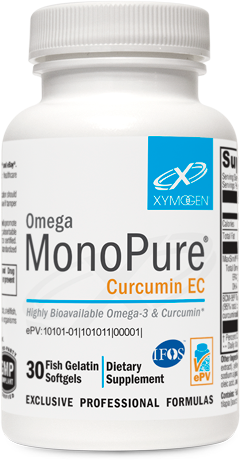
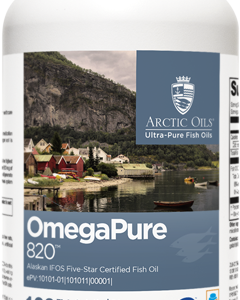
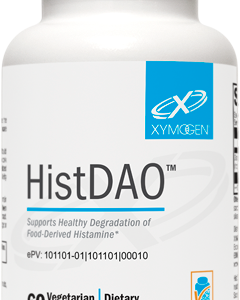
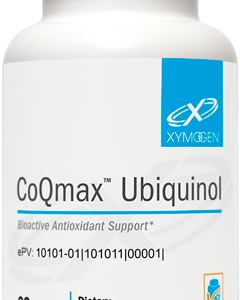
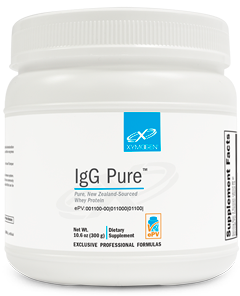
Reviews
There are no reviews yet.